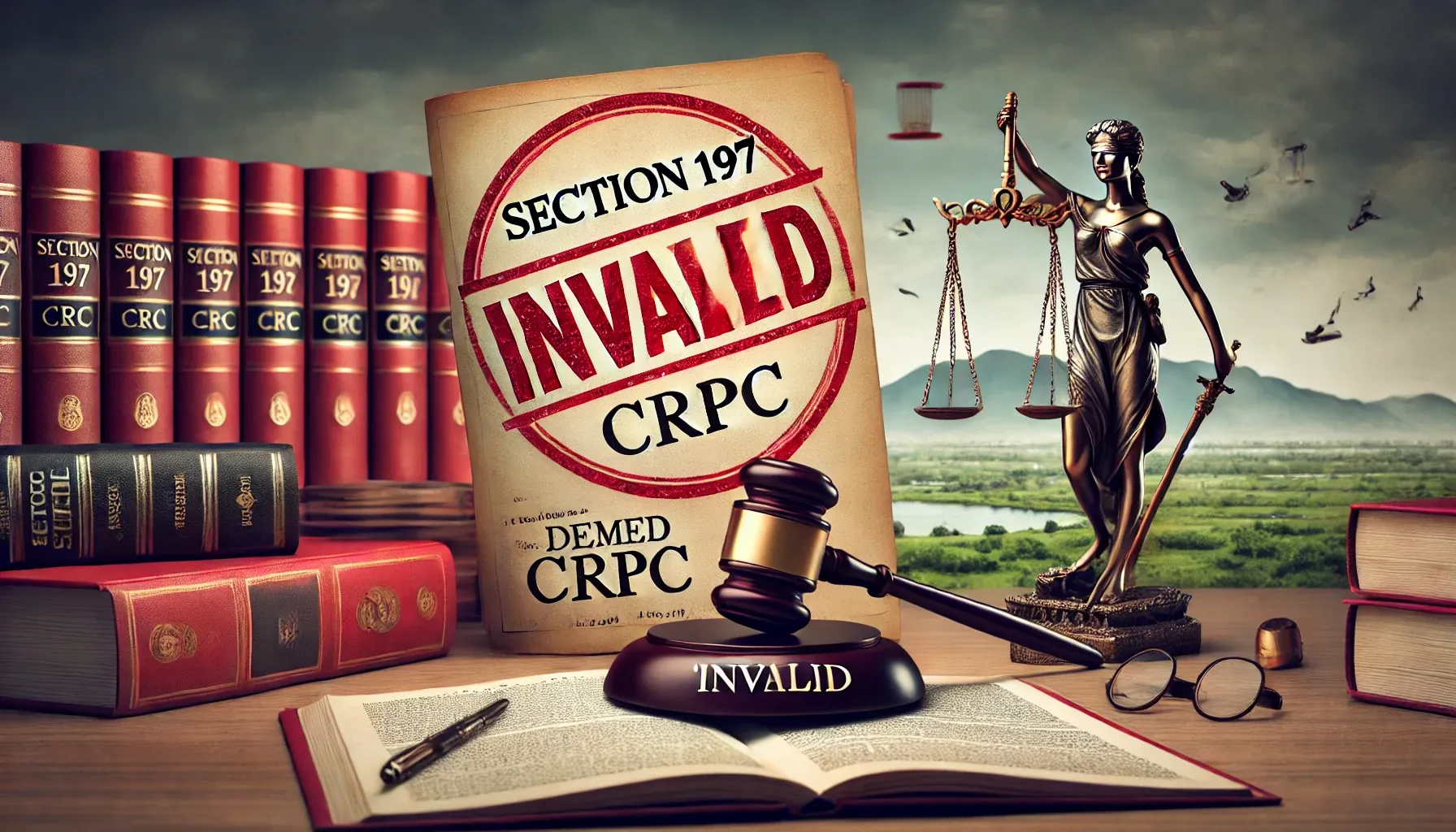The Supreme Court rules there is no concept of deemed sanction under Section 197 CrPC, emphasizing that public servants cannot be prosecuted without valid sanction from the competent authority.

On February 25, 2025, the Supreme Court of India issued a significant ruling regarding the interpretation of Section 197 of the Code of Criminal Procedure (CrPC). The Court clarified that the concept of a "deemed sanction"—where a sanction for prosecuting a public servant is automatically assumed if not granted within a stipulated time—does not exist under this section.
Key Points of the Judgment:
No Deemed Sanction under Section 197 CrPC:
- The Supreme Court, consisting of Justice BV Nagarathna and Justice Satish Chandra Sharma, made it clear that Section 197 of CrPC does not recognize the idea of a "deemed sanction".
- The Court rejected the argument that failure to grant sanction within the prescribed time could be treated as a deemed sanction for prosecution.
Rejection of Cited Precedents:
- The complainant and prosecution had referred to two major cases, Vineet Narain v. Union of India and Subramanian Swamy v. Manmohan Singh, to support their argument for the deemed sanction concept.
- However, the Court dismissed these cases, noting that Vineet Narain dealt with the investigation powers of the CBI and CVC, and Subramanian Swamy focused on guidelines for Parliament’s consideration rather than establishing a legal basis for deemed sanction under Section 197 CrPC.
Statutory Interpretation:
- The Supreme Court emphasized that the concept of deemed sanction is not statutorily incorporated into the CrPC.
- The Court stated, “However, such a proposition has not yet been statutorily incorporated by the Parliament and in such a scenario, this Court cannot read such a mandate into the statute when it does not exist.” This clarifies that without a statutory provision, the concept of a deemed sanction cannot be applied.
Comparison with the New Criminal Law (BNSS 2023):
- The Court made a distinction between the CrPC and the Bhartiya Nagrik Suraksha Sanhita (BNSS), 2023, a newer criminal law that introduces the concept of deemed sanction.
- Under Section 218(1) of BNSS, if sanction is not granted within 120 days, it is considered deemed granted, allowing for prosecution to proceed. However, this provision is not part of the CrPC, and the Supreme Court noted that it cannot be read into the existing legal framework.
Case Background:
- The case involved a public servant who was facing prosecution despite the sanctioning authority failing to provide sanction within the stipulated time. The respondents argued that because the sanction was delayed, it should be considered deemed granted.
- The Supreme Court ruled that the public servant could not be prosecuted without a valid sanction, reaffirming the importance of obtaining prior sanction before proceeding with charges against a public servant under Section 197 CrPC.
Final Ruling:
- In conclusion, the Supreme Court quashed the proceedings against the public servant, ruling that the Magistrate could not proceed with the case without a valid sanction from the appropriate authority.
- The Court made it clear that the absence of sanction invalidates any prosecution under Section 197 CrPC.
Case Title: SUNEETI TOTEJA VERSUS STATE OF U.P. & ANOTHER
Attachment:





